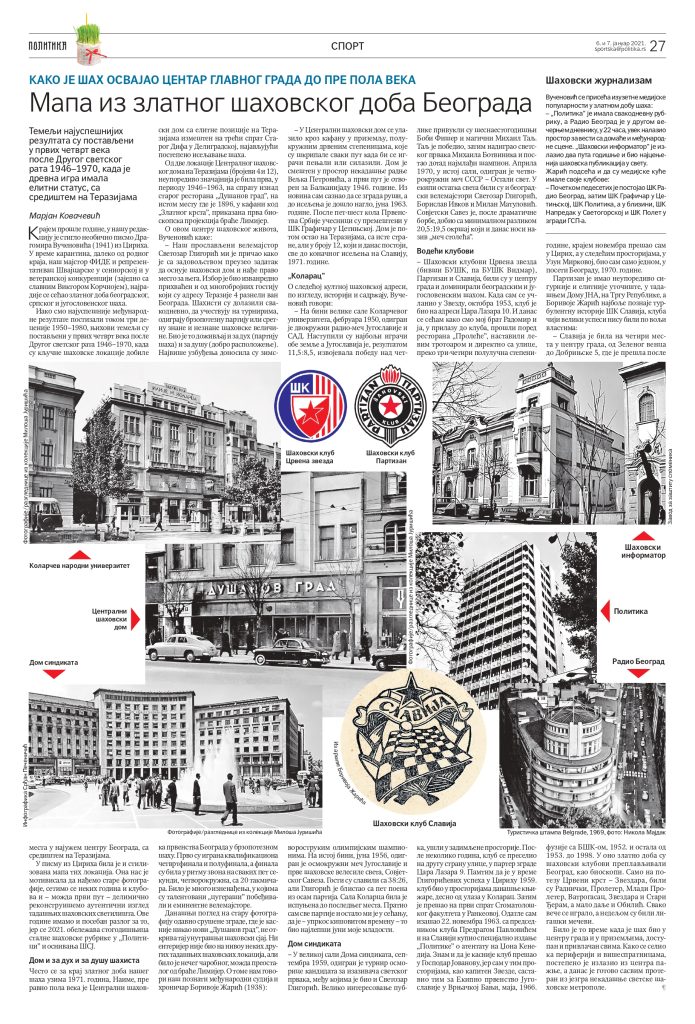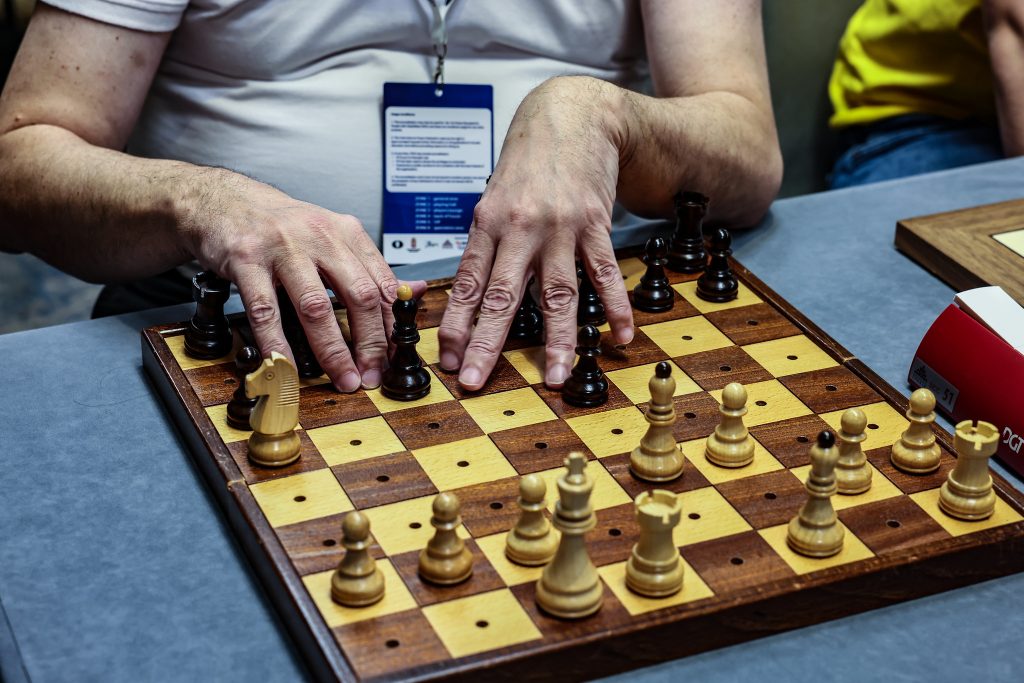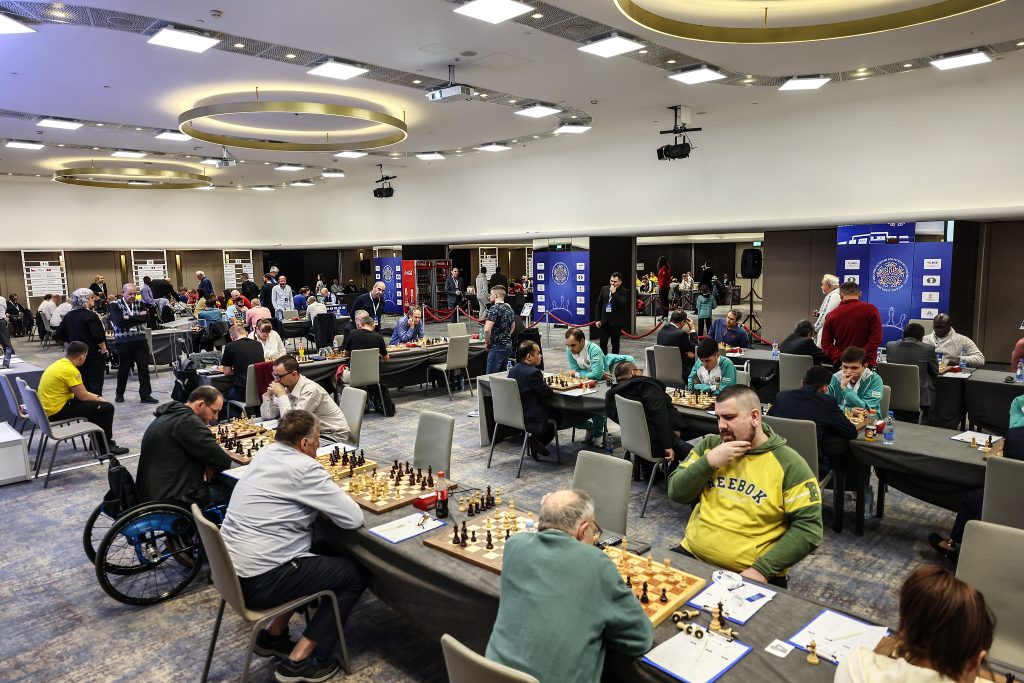By DIS reporter Marjan Kovacevic
Being born with a physical disability of feet and hands, I suddenly learnt this doesn’t prevent me from moving pieces in the right direction or from creating beauty in chess and chess composition
And so, it’s happening in my city – the inaugural Chess Olympiad for people with different disabilities!
Belgrade has been all in chess for at least 75 years, since the great Svetozar Gligorić took part in the foundation of the Central Chess House in the old Restaurant “Dušanov Grad”, in the heart of the town, on the famous Terazije Square.
In the “Old Belgrade Chess Map,” you can find some other “holly chess places”: the Kolarac Foundation (matches Yugoslavia – USSR); the Syndicate House (USSR – The Rest of the World); the most popular chess clubs of that time Crvena zvezda, Partizan and Slavija; the Chess Informant publishing company, and the central media houses after the Second World War, which gave chess extensive coverage: Radio Belgrade and the Politika daily (the oldest newspaper in the Balkans).

On February 15th 2022, the daily newspaper Politika celebrated 100 years of its chess column! Since 1986, the paper has a Monday chess page, where I was lucky to take part since the first issue and follow some great global events organised in Belgrade.
This Olympiad is a special event for Belgrade and the entire world. It is really crossing the boundaries of games and sports in general, to reach some higher social goals. Like some other general projects of FIDE, such as those devoted to prisoners and refugees, the DIS Olympiad glorifies the endless qualities of the ancient chess game.
Chess is played everywhere by everyone, testing a person and connecting with others in a dialogue of minds. No differences in age, abilities and distance between players can stop chess.

Being born with a physical disability of feet and hands, I suddenly learnt this doesn’t prevent me from moving pieces in the right direction, from creating beauty in chess and chess composition. It is only the mind and the imagination that it takes. This discovery was the crucial boost for my self-confidence in childhood and the door to the world of equality.
One of the strongest memories I cherish was the visit of our elementary school chess team to the school for blind children nearby. All the superiority I felt over the board got lost in a shocking moment. These kids didn’t see, but they were beating us easily!
Everything was much easier after that. Soon, I understood the term physical disability as a relative one, not only over the chess board but in life too.
People instantly notice physical or mental disabilities, but it takes much longer to understand that all other kinds of disabilities exist around: emotional, social, and psychological ones… Well, poverty may be the worse disability of all, but doesn’t exclude the joys of chess. And, although there are no special chess tourneys for these – often unnoticed – kinds of disabilities, chess may help overcome some of them, too.

Marjan Kovacevic is a Serbian journalist. He edits the chess page of Politika daily and also covers tennis and Novak Djokovic. He is also a successful chess problemist (a Grandmaster of FIDE for both Solving and Composing), and the President of the World Federation for Chess Composition (WFCC).
Photo: Mark Livshitz
